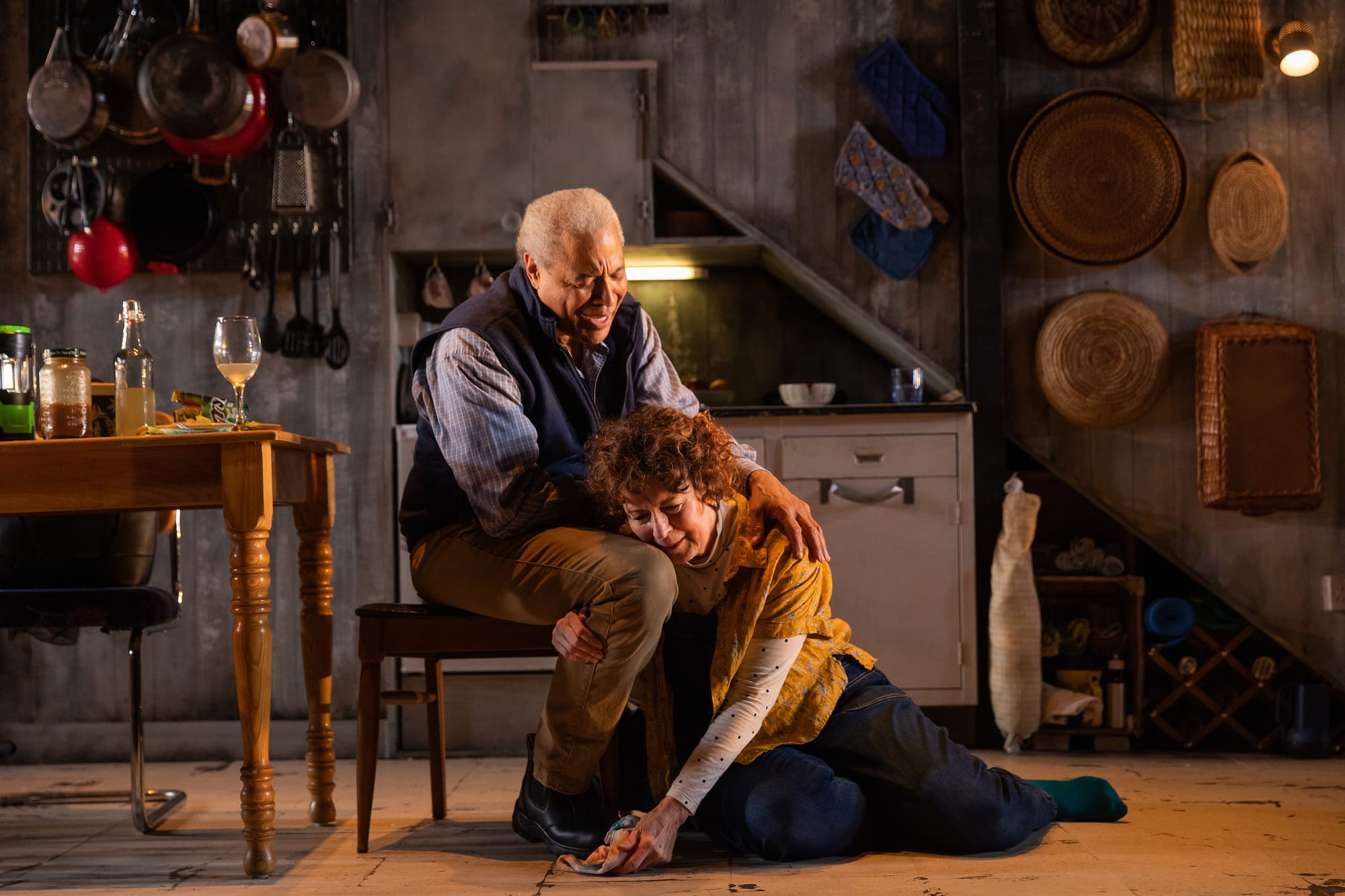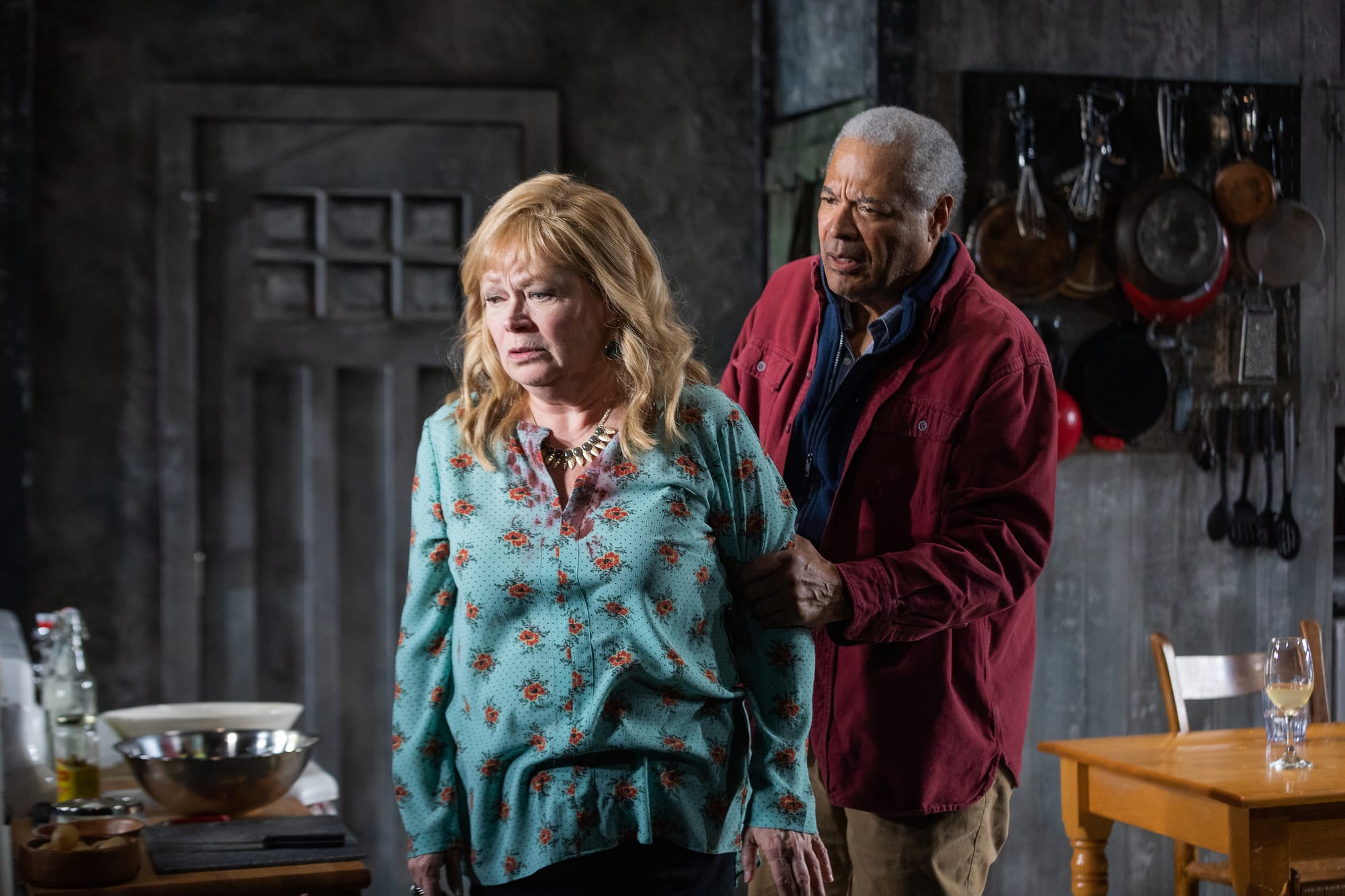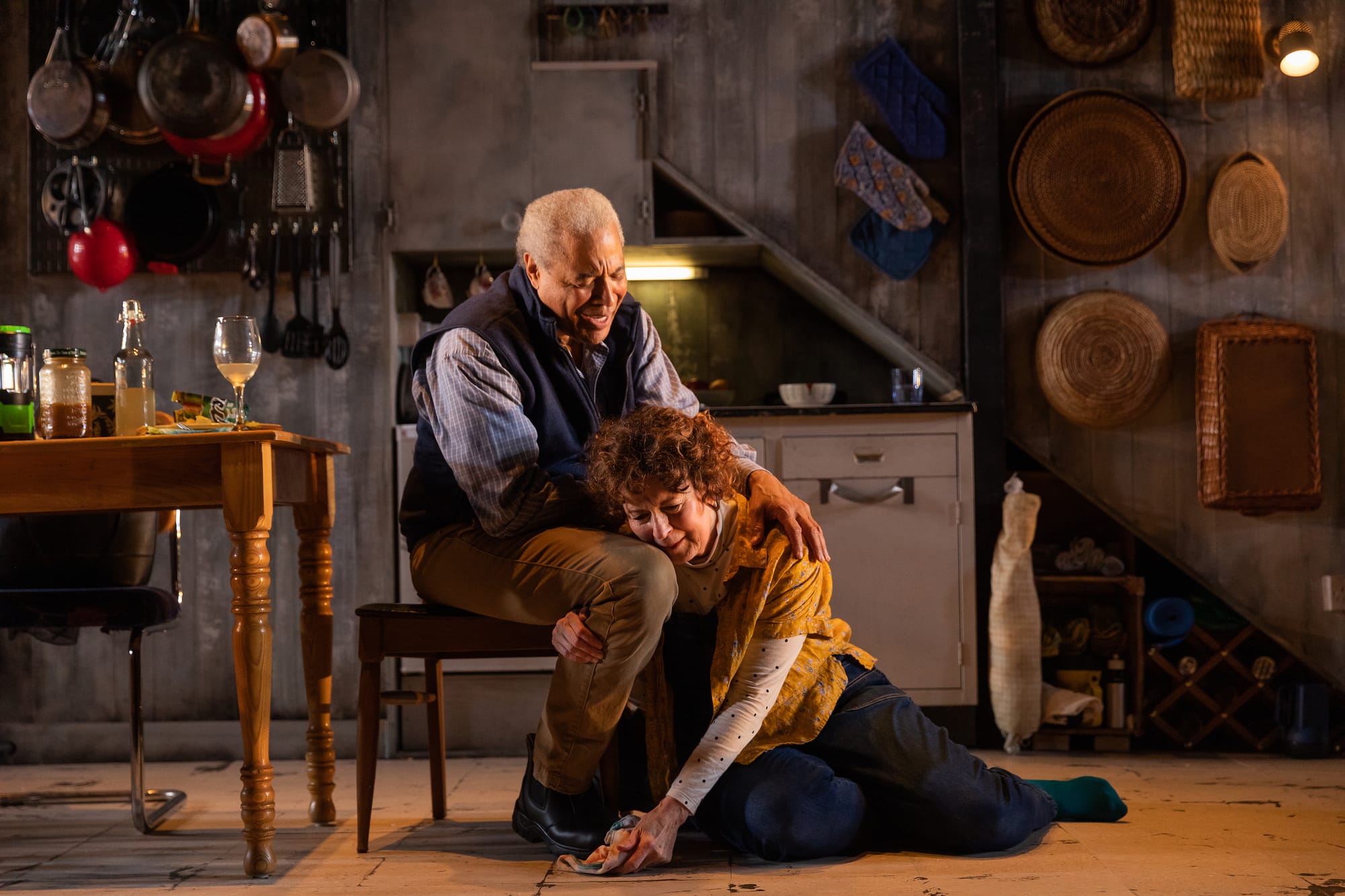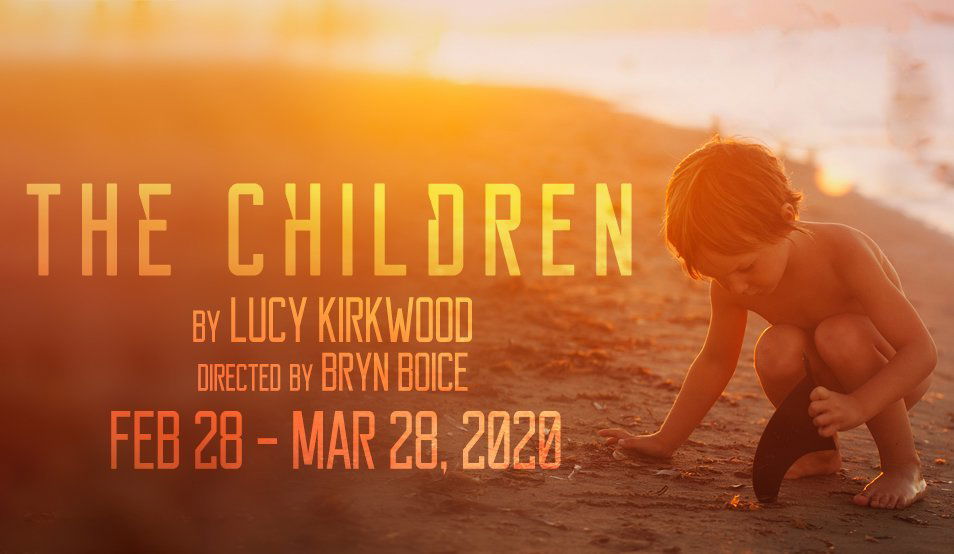"The Children" by Lucy Kirkwood - SpeakEasy Stage Company - REVIEW

SpeakEasy Stage Company Presents a poignant ”Children”
By Kevin T. Baldwin
METRMAG Reviewer
# 774-242-6724

BOSTON, MA. - "The Children" by Lucy Kirkwood. Presented by the SpeakEasy Stage Company. Performances February 28 through March 28. in the Roberts Studio Theatre in the Stanford Calderwood Pavilion at the Boston Center for the Arts, 527 Tremont Street in Boston’s South End. Ticket prices start at $25, with discounts for students, seniors, and people age 25 and under. For tickets or more information, the public is invited to call BostonTheatreScene Ticketing Services at 617-933-8600 or visit www.SpeakEasyStage.com.
Written by Lucy Kirkwood. Directed by Bryn Boice.
Cast Includes: Tyrees Allen, Karen MacDonald, Paula Plum.
SpeakEasy Stage Company presents a potent look at survivors of a nuclear even in “The Children” 2018 Tony Award Nominee for Best Play.
It is hard to call it a “drama” but it certainly isn’t a “comedy” and calling it a “dramedy” just doesn’t do it justice. This how does have many humorous moments but it also is replete with a veritable treasure trove of compelling moments that come from the riveting trio of performances from Karen MacDonald, Paula Plum and Tyrees Allen.
As lights come up, we are in a farmhouse kitchen, where an older woman is seen panting, out of breath, nose bleeding. This is Rose (Karen MacDonald).
Rose has returned to the British coast to visit her friends, Hazel (Paula Plum) and Robin (Tyrees Allen). She has not seen either of them, supposedly, in almost 40 years. The reasons for her return become apparent as the story unfolds.
 Karen MacDonald and Tyrees Allen in SpeakEasy Stage Company's production of Lucy Kirkwood's "The Children". Photo Credit: Maggie Hall Photography.
Karen MacDonald and Tyrees Allen in SpeakEasy Stage Company's production of Lucy Kirkwood's "The Children". Photo Credit: Maggie Hall Photography.
All are retired workers from a nearby nuclear power plant where an “event” happened years before due to a tsunami. Robin and Hazel now reside near the "exclusion zone" for the plant
The friends, at first, reminisce, rejoicing in Rose’s return, then long-held secrets are revealed as to why Rose has come back after all these years.
The two hour play by Lucy Kirkwood is masterfully directed by Bryn Boice and is the ultimate of bittersweet reunions (with or without the “Chernobyl”-like setting).
Without giving too many plot points away, Robin and Rose have had an on-again/off-again affair over the years which Hazel suspects but does not speak of. All three have been affected by the nuclear event in ways both mental and physical.
Rose has no children. Robin and Hazel’s children are all grown and moved on. However, their eldest daughter is the only one Rose has seen and seems to be the one child who never managed to cut the apron strings.
 Tyrees Allen and Paula Plum in SpeakEasy Stage Company's production of Lucy Kirkwood's "The Children". Photo Credit: Maggie Hall Photography.
Tyrees Allen and Paula Plum in SpeakEasy Stage Company's production of Lucy Kirkwood's "The Children". Photo Credit: Maggie Hall Photography.
Discussions turn to going back to where the nuclear event occurred, but Robin and Hazel are reluctant to return when Rose asks, which is the main reason for her visit.
She pleads with both of them to go back, knowing that death, for all three, is certain to come with the choice. Summarizing, her argument is that they are all now so close to death that what difference could the loss of a few years make?
She implores for them to consider the generations of “children” who will inherit the world and shall be left to deal with the clean-up of their generation’s monstrous nuclear mistake.
All the actors are exceptional with Plum given a slight edge as Hazel, only having been given a bit more layers to work with by the story. She is suspicious of Rose, and has suspicions about her husband, as well.
Allen is not seen until half way through the show but once he appears he is fully engaged and utterly charming.
MacDonald is the driving force behind the piece and never falters. Rose is the catalyst for all that follows, not suspecting how her life is also about to change, possibly, no - most likely - for the last time.
All three are given multiple moments of short descriptive monologues which give the audience a lot to consider as they leave the theatre.
The verbal images unleashed by Kirkwood’s script reveal decisions past, present and future, all colliding to provide a sad but eloquent portrait of these survivors who must make final decisions as to their respective legacies and collective legacy.
The set design by Cristina Todesco depicting Robin and Hazel’s rural farm house, is simplistic on the surface, very functional and basic (until a startling reveal at the end).
The show is billed at running an hour and 40 minutes but it really is closer to two solid hours. However, this is neither complaint nor criticism. The performances between the three actors is so solid, so compelling, the time becomes irrelevant.
This is a fine example of Boston theatre at its best and, with this level of talent, both on the page and on the stage, a production that should not be missed.
The show runs approximately one hour 40 minutes with one intermission.
Kevin T. Baldwin is a member of the American Theatre Critics Association (ATCA)
@MetrmagReviews
@Theatre_Critics





